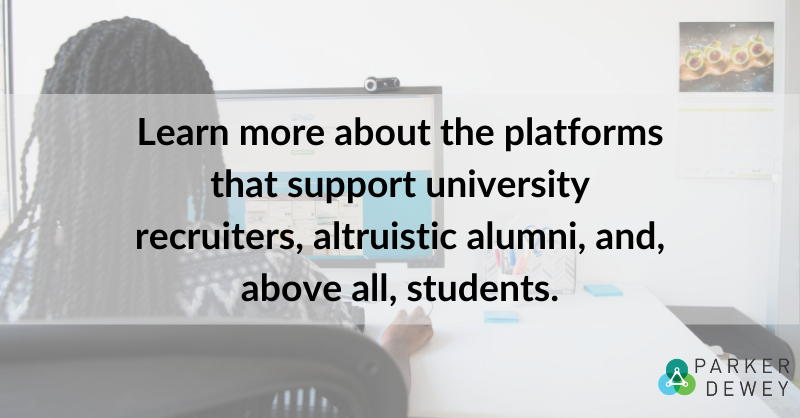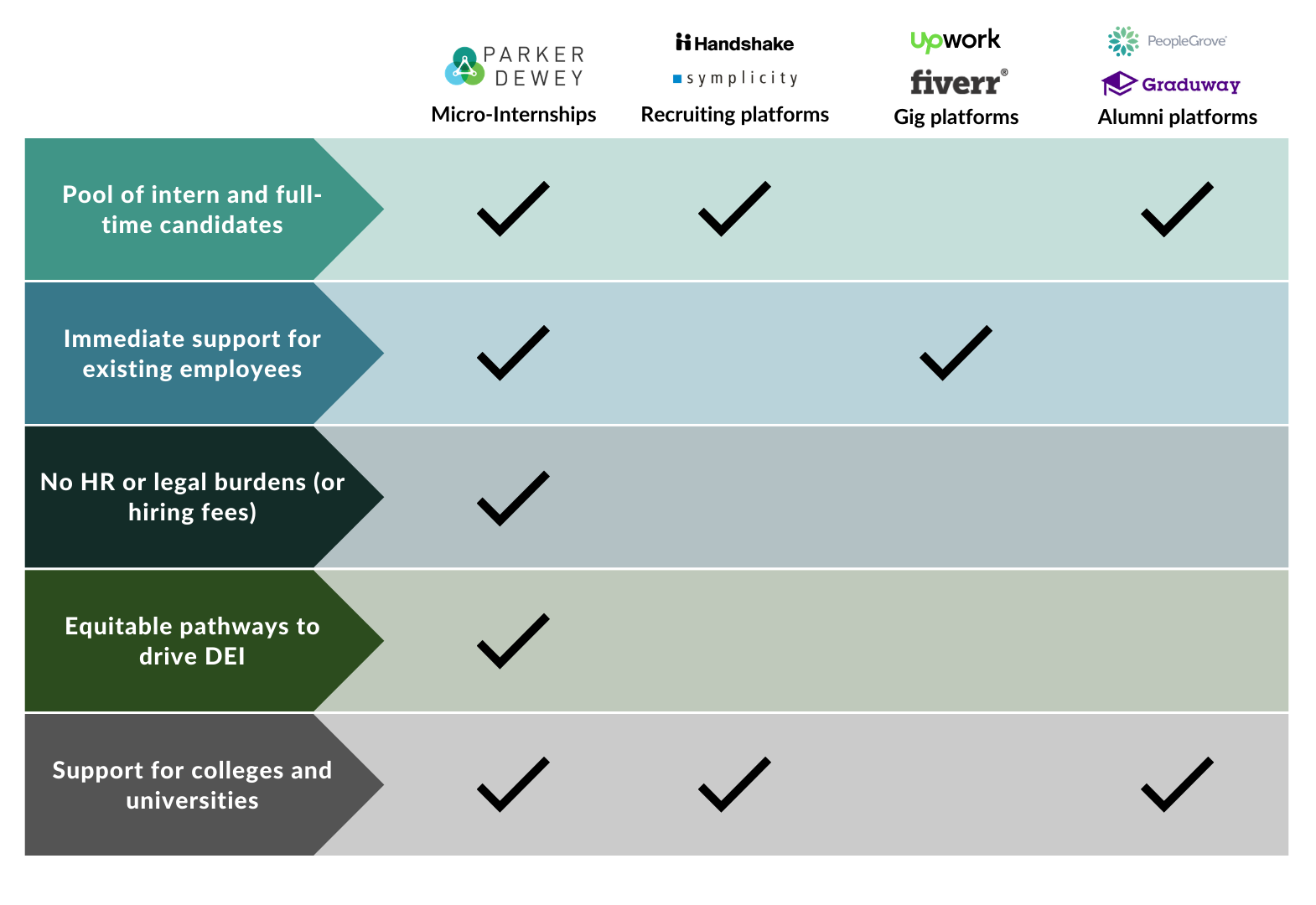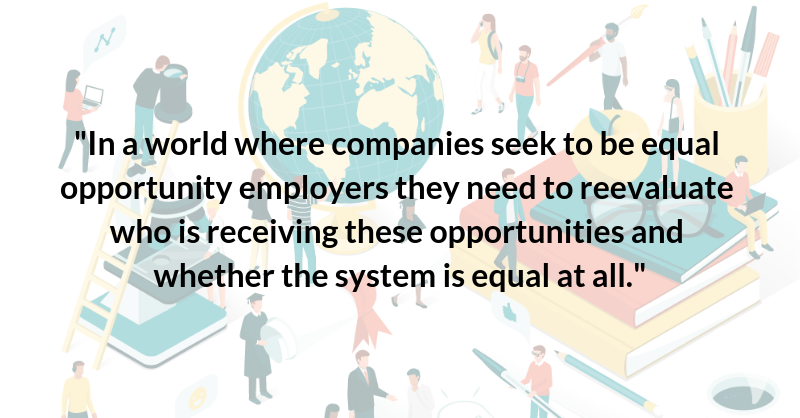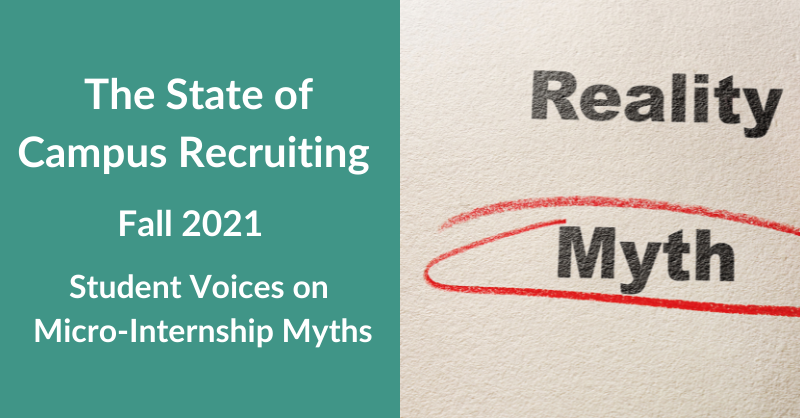
Platforms for Hiring College Students in a COVID Environment
As COVID continues to disrupt both the economy and the education system, professionals are facing challenges unlike any before. Whether it is an HR professional who wants to ensure he or she achieves campus recruiting goals, an overburdened employee seeking an extra set of hands, or a proud alumni interested in supporting his or her alma mater, the traditional options are no longer enough.
With this disruption, we have seen various discrete approaches emerge, and one that benefits all constituents: university recruiters, altruistic alumni, and, above all, students.
 University recruiting platforms (Handshake, Symplicity, etc.)
University recruiting platforms (Handshake, Symplicity, etc.)
As colleges continue to drive students to these platforms, vendors are increasingly charging companies for preferred access and other features to filter and engage students. While useful to post job and internship opportunities, companies often need to work across different platforms to access students across schools, and gain little insight beyond academic pedigree and a resume. Even for those companies paying for “premium features,” engaging candidates is difficult and the underlying process still leads to wasted time, bad interviews, frustrated hiring managers, and missed candidates.
Gig sites (Upwork, Fiverr, etc.)
Even if you have not yet used a remote freelancer, chances are hiring managers at your organization have. With well over half of all professionals having engaged a gig worker, hiring managers are already comfortable giving project-based work to individuals as a way to more effectively leverage their time. Unfortunately, given that many of these freelancers are either overseas or not interested in full-time roles, there is little opportunity to use this as a recruiting funnel. And even if there is mutual interest, the very high “disintermediation fee” makes it economically prohibitive to do so.
Alumni engagement platforms (PeopleGrove, Graduway, etc.)
Alumni are actively seeking ways to support college students and recent grads whose job / internships were rescinded or recruiting processes ceased because of COVID. Since many of these alumni do not drive their respective company’s recruiting processes or have the financial wherewithal to underwrite programs, their support is typically limited to a mentoring session, informational interview, or an introduction. While an increasing number of alumni are providing project-based, professional experiences to current college students (more on this in a minute), these platforms place a significant burden on the alumni to do so (e.g., 1099 / W2 approval, payment processing, legal compliance, etc.).
The alternative approach used by some alumni platforms is to provide unpaid projects to students. This not only disadvantages students who cannot afford to do unpaid work, but it also may violate DOL guidelines on unpaid internships, creating legal risk for the alumni and his or her employer.
Micro-Internships (Parker Dewey)
While not a new idea, Micro-Internships are emerging as the bridge across all three of these areas. Since being pioneered in 2016, these short-term, remote, paid, professional assignments have proven to be an invaluable way for university recruiters to access, engage, and assess college students at the top of their recruiting funnel. Not only does this save time parsing resumes, conducting phone screens, and hosting interviews, but it also drives strong employer brand, enhanced diversity, improved conversion, and better hiring. In fact, with elimination of on-campus events this year, many organizations are redeploying their travel budgets to sponsor programs at focus schools, providing paid opportunities to students, while building their brand and supporting their college partners.
This model is also easy to introduce as hiring managers are likely already using freelancers for project-based work. By aligning this to your campus recruiting strategies, you can harness what they are already doing to gain insights into prospective candidates directly from hiring managers earlier in the process – you can even use Micro-Internships to introduce candidates from beyond your typical hiring pools. And for those professionals not yet working with freelancers, this is viewed as a perk – who couldn’t use an extra set of hands to complete some of those short-term projects jamming up a to-do list?
Beyond the immediate support provided by Micro-Interns, hiring managers value the opportunity to support college students from their alma mater, local programs, favorite sports teams, or key partners. Everyone likes to give back, and providing a student an opportunity to get paid for working on a real project is a great way to do so (and is much more interesting than answering the “Describe a typical day” question). In addition, as highlighted above, Micro-Internships make it easy for companies to create these opportunities as they eliminate the HR burdens and legal risks of doing it directly.
Final Thoughts
COVID has generated many challenges for college recruiting, but there is one solution in these dynamic times that can help companies achieve their goals of finding the best talent for their full-time job and internship programs. While companies will likely be using a wide variety of options, only Micro-Internships make this process easy for companies, fair for students, and open to all U.S.-based universities...a true win-win-win.




